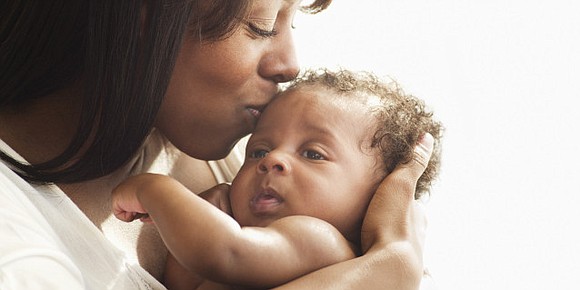THIS WAY FORWARD: Community-Based Solutions for the African-American Childbirth Crisis
Style Magazine Newswire | 11/27/2017, noon
Kyira “Kira” Dixon Johnson and her husband Charles seemed to have it all: a healthy baby boy, flourishing entrepreneurial careers, and vibrant health. Which is why no one could have predicted that 24 hours after welcoming their second son into the world, Kyira would be dead.
The Johnsons represent an alarming reality that’s only recently gained attention in the national media: African-American women are dying in childbirth at 3-4 times the rate of their white counterparts. When I first read the statistics, I was stunned. “This isn’t the 19th century!” Yet facts prove otherwise.
For a recent Essence article, Meaghan Winter wrote:
“In some rural counties and dense cities alike, the racial disparity in maternal deaths is jaw-dropping: Chickasaw County, Mississippi, for instance, has a maternal death rate for women of color that’s higher than Rwanda’s. In New York City, Black women are 12 times more likely than White women to die of pregnancy-related causes—and the disparity has more than doubled in recent years.”
While experts agree that the causes are multi-faceted, and include factors such as diet, poor pre- and post-natal care, existing high-risk conditions (like hypertension and diabetes) and lack of access to properly trained medical staff, by far the most troubling thing I heard was this comment from Darline Turner, an Austin-based physician’s assistant and certified doula:
“This goes across socio-economic status. Even a high achieving Ph.D. – who is a six to seven figure earner – still has worse birth outcomes than a white woman without a high school education who is smoking,” she said during a phone interview.
“How is this possible?” I wondered.
Darline explained that the “issue no one wants to talk about” is the experience of chronic mental, physical and emotional stress experienced by black women living in modern America, and its negative impact on birth outcomes. (For more thoughts on this topic from Darline Turner, click here.)
Disturbed by the seeming nonchalance at what should be declared a national health emergency, she began the Healing Hands Doula project, a grassroots effort aimed at supporting healthy pregnancies and births for women of color in Texas.
Her belief that “we’ve got to return to community” is borne out by scientific studies from a variety of fields. “We know that loneliness is a major factor in disease.” According to her, a mom who isn’t connected to a strong and vital community offering robust emotional and medical support is more susceptible to complications.
The good news is, with proper care, the statistics can be reversed. This fact is demonstrated by Jennie Joseph of Common Sense Childbirth, a prenatal clinic, birthing center, and school of midwifery in Florida where she applies her holistic maternity care model. The results are astoundingly positive and are changing the status quo. By making a difference, Joseph is not only increasing the well being of the families she serves, but also her own. To learn more about her and her mission, visit her website here: http://www.commonsensechildbirth.org. (Additional resources can be found via Sister Song, Center for Reproductive Rights, BlackMamasMatter and The Afiya Center.)
The kind of purpose-driven work that birth professionals like Turner and Joseph are doing on behalf of women of color falls into the category of purposeful contribution. Over the past few years, research has shown that when you answer the “call” to do good for others, you actually strengthen your immune system.
What about those who lack a sense of purpose? They develop genetic patterns equivalent to people under constant stress. (This correlation between chronic stress and purpose is based on studies done at UCLA, The University of North Carolina and in the work of Dr. Mario Martinez.) The only cure for what ails the purposeless is to give meaningfully.




